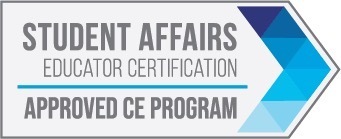
Building a Student Affairs Data Lake: Data Integration for Inquiry, Improvement, and Impact
Recorded On: 02/06/2024
-
You must log in to register
- Non-member - $179
- Member - $79
Heather J. Strine-Patterson, Ph.D.
Director of Student Affairs Assessment
Appalachian State University
Dr. Heather Strine-Patterson is the Director of Student Affairs Assessment at Appalachian State University. She also serves as the current Editor for the Journal of Student Affairs Inquiry, Improvement, and Impact and an Ex Officio Board Member with Student Affairs Assessment Leaders (SAAL). Dr. Strine-Patterson has done numerous presentations at regional and national conferences and recently published "Assessment is a leadership process: The Multilevel assessment process" with New Directions for Student Services.
Nearly 20 years ago, Dr. Strine-Patterson began her career as a student affairs practitioner. Five years ago, she began her full-time professional journey with student affairs assessment at Appalachian State. There, among other things, she is currently leading efforts to build a student affairs data lake that informs the division’s inquiry, improvement, and impact efforts. Dr. Strine-Patterson earned a Ph.D. in Strategic Leadership with a concentration in Postsecondary Analysis & Leadership from James Madison University. She also earned a Masters of Science in Higher Education Administration from Syracuse University, and a Bachelor of Arts in Psychology from Ohio State University.
Ellissa Brooks Nelson, Ph.D.
Divisional Director, Student Affairs Research and Assessment
University of North Carolina at Charlotte
Dr. Ellissa Brooks Nelson currently serves as the Divisional Director for Student Affairs Research and Assessment at the University of North Carolina at Charlotte. She has over 15 years of experience in program evaluation, assessment, strategic planning, data management, and educational research. She has held leadership positions within local government, higher and secondary education, and non-profit sectors. Dr. Brooks Nelson is currently leading efforts within the Division of Student Affairs in building an integrated system of Student Affairs data to inform the impact of Student Affairs on student success. She is passionate about helping student affairs program staff tell their story of program impact and to identify opportunities to better serve students.
Dr. Brooks Nelson has achieved numerous peer-reviewed publications and has presented at state, regional, and national conferences. She is actively involved in numerous professional organizations and is currently serving as the VP of Profession Advancement on the 2023 Student Affairs Assessment Leaders Board. She received her bachelor’s degree from Appalachian State University and her master’s and Ph.D. degrees from UNC Charlotte.
Student data has long been integrated into a university data ecosystem from admissions (e.g., demographics) and curricular experiences (e.g., course registration, G.P.A.); however, co-curricular and extracurricular experiences have generally been dispersed in different department third-party systems, spreadsheets, or paper and pen sign-in sheets. Often, the time it takes to clean, match, analyze, and visualize this dispersed data is time intensive and does not match the skills of most student affairs practitioners. This means that by the time data is visualized, it is largely done to describe the student involvement and utilization of services for yesterday’s student - not today’s student.
Building a student affairs data lake supports an integrated data and analytics ecosystem that allows student affairs to create real-time data visualizations that are trusted and timely. This supports student affairs’ ability to inquire, improve, and share impact stories about current students. The increasing demand for fast, high-quality data has inspired the presenters to evolve their way of thinking, doing, and transforming the work of student affairs assessment by building a student affairs data lake that is a cornerstone of their practice. Come learn how your department or division can approach building a data lake to create real-time data visualizations that support inquiry, improvement, and impact.
Learning Outcomes:
1. Articulate the benefit to building an integrated data system, including the types of data visualizations that can be created.
2. Identify the key advocates and partners to build an integrated data system at any institution.
3. Articulate the process for building a standard data collection protocol for a department and division.
Questions? Contact NASPA Advisory Services at practices@naspa.org.
Registered for the live webinar but unable to attend? A recording of the webinar will be available for registrants 365 days after the live webinar.
NASPA has been approved by the Higher Education Consortium for Student Affairs Certification to provide CE credit for Certified Student Affairs Educators (CSAEd). NASPA is solely responsible for all aspects of this program.
Guidelines for earning CE credit:
1 CE is awarded for attending this live session.
No partial credit will be rewarded.
Participants must also complete the feedback survey in the Online Learning Community.
Credit is available for attending the live session and viewing the on-demand recording.
To receive CSAEd credit, attendees must complete the Feedback Survey in the online event offering the certification. Once the survey is completed, your Certificate will be available in the event modules. The Certificate of Completion, which will show the event and credit earnings, is available for download and/or print from the event in your Online Learning Community.
